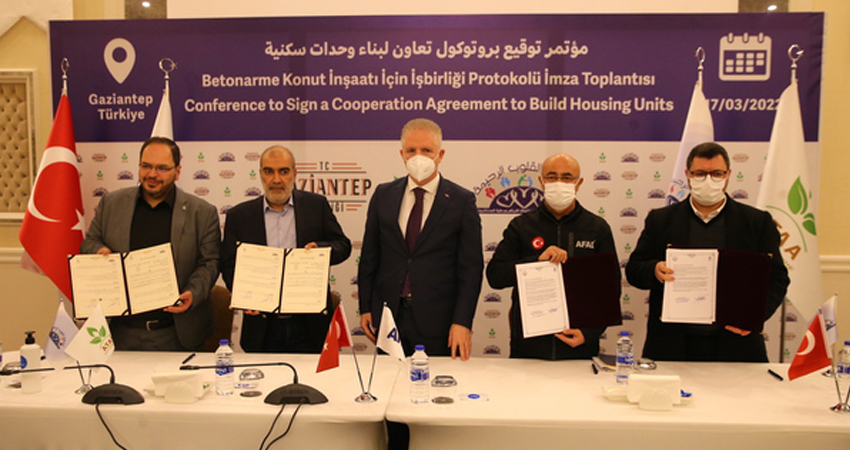In mid-2022, the Office of Foreign Assets Control (OFAC) of the United States Department of the Treasury issued a general license that allowed economic activities in the non-regime held areas of northeast and northwest Syria. According to the OFAC, this authorization aims to promote economic stabilization in areas liberated from the Islamic State (IS).
Without providing further details, the US Treasury Department approved activities in the sectors of agriculture, information and telecommunications, power grid infrastructure, construction, finance, clean energy, transportation and warehousing, water and waste management, health services, education, manufacturing, and trade.
The OFAC stressed that this authorization does not lift or waive sanctions imposed on the Assad regime or designated terrorist organizations.
Undoubtedly, humanitarian organizations can take advantage of this authorization to respond to the humanitarian needs of civilians in the areas covered, especially since the sectors included are those which affect people’s daily lives.
Nevertheless, it is important not to lose sight of the fact that the areas covered by the license are under the control of several actors, who have been proven to be involved in numerous human rights violations – some systematic and widespread – according to UN and independent human rights reports.
Thereby, humanitarian organizations should be aware of the moral and legal responsibility that rests with them. The organizations must take diligent measures to ensure their humanitarian activities do not support any party who has committed violations, in order to avoid indirect involvement in current or future violations committed against the population.
As such, Syrians for Truth and Justice (STJ) recommends that the humanitarian actors active in the concerned areas should reflect on the following obligations:
- Their activities must be purely humanitarian: They should aim to preserve or restore the security, dignity, and physical and mental integrity of all persons affected by the conflict. Engaging in for-profit, political, or military activities under the humanitarian umbrella is a clear violation of humanitarian action and would put civilians in need at risk of being denied the assistance they are entitled to.
- Their activities must be unbiased: Preference among civilian beneficiaries must be based only on their level of need. Therefore, humanitarian activities and interventions must be planned according to humanitarian needs — not the dictates of the ruling political and military forces.
- Humanitarian actors must ensure no diversion of humanitarian relief: Actors must exercise effective oversight over the distribution of humanitarian relief in accordance with the principles of humanity and impartiality; otherwise, they will lose this mandate and thus deprive those in real need of accessing assistance.
- Humanitarian aid must in no way benefit any party to the conflict: Supporting any party responsible for violations contradicts the principle of neutrality in humanitarian action and may amount to direct or indirect support to the beneficiary party and, thus, the involvement in its acts may violate International Humanitarian Law (IHL) and International Human Rights Law (IHRL).
- Individuals under the protection of the IHL must be the ultimate beneficiaries of the humanitarian aid. If any participant in hostilities – individual or group – accesses humanitarian aid, humanitarian actors would be liable for violating both the principles of humanitarian action and the right of those protected to access due humanitarian assistance. Denying aid to the needy may amount to several types of war crimes and crimes against humanity, especially if it is carried out systematically and/or deliberately against a specific population.
- Humanitarian action must not be a means for parties to the conflict to commit violations or international crimes. For example, humanitarian aid must not be used to persecute certain individuals or communities, treat them inhumanely, seize their property unlawfully, or change their demographics.
- Humanitarian actors must diligently protect human rights; this is important to assess the already and potential effects on human rights in order to prevent, and bypass adverse impacts on human rights, and hold perpetrators accountable. The due diligence process must cover adverse human rights impacts that the organization may cause or contribute to through its activities, or that may be directly related to its operations, products, or services through its relationships and affiliations.
- Humanitarian actors must communicate transparently and regularly with beneficiaries: Open communication is vital to keep beneficiaries updated about the plans humanitarian actors are considering and enacting. With strong communication, beneficiaries can be informed about implementation activities, partners, challenges and the strategies to overcome them, available and used resources, and methodologies used to identify and avoid any adverse effects on human rights.
- Humanitarian actors must not be tempted by the authorities’ attempts to manipulate humanitarian needs. For example, resettling displaced people in the areas where they have been displaced and strengthening their presence there often means the denial of their right to return to their areas of origin, and potentially a denial of the right of the original inhabitants’ right to return if they too had been displaced over the course of the conflict. Humanitarian actors must stick to the ‘do no harm’ principle.
- Humanitarian actors must engage in an effective dialogue with the controlling parties and affected communities on human rights and the consequences of violating them by impeding, diverting, or misuse of humanitarian aid.

